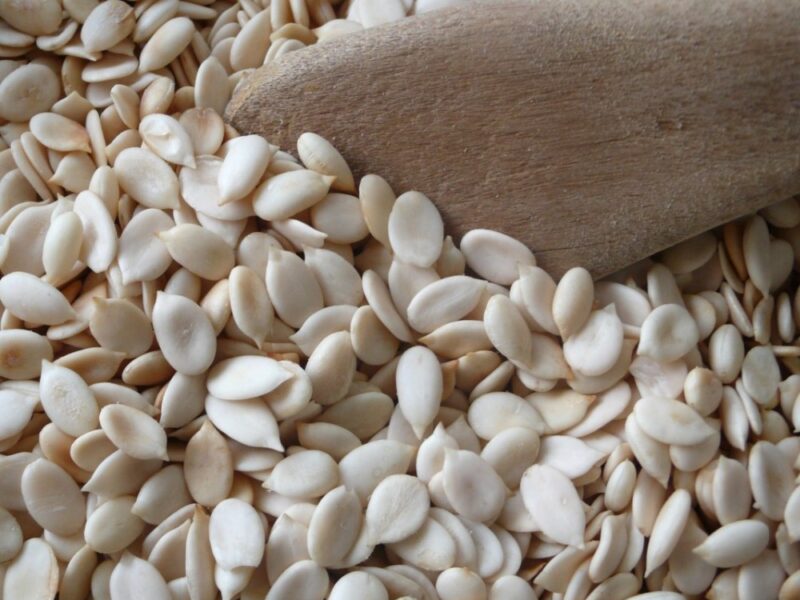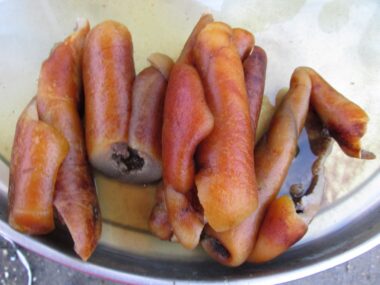Egusi (also spelled as “agusi” or “agushie”) is a popular and versatile ingredient in West African cuisine, particularly in Nigeria, Ghana, and Cameroon. It refers to the seeds of certain melon or gourd plants, such as the watermelon and bitter melon. Egusi seeds are highly valued for their rich flavor, nutritional content, and culinary uses.
Characteristics of Egusi
- Appearance: Egusi seeds are small, flat, and oval-shaped, with a white or pale beige color. They have a slightly nutty taste.
- Varieties: There are different types of egusi seeds used in West African cuisine, with variations in size and flavor. Common varieties include the “wild egusi” and “cultivated egusi.”
Culinary Uses
Egusi is a versatile ingredient and is primarily used as a base for soups and stews in West African cuisine.
- Egusi Soup: One of the most famous dishes made with egusi is “egusi soup” or “melon seed soup.” This thick and hearty soup features a broth made from ground egusi seeds, leafy vegetables (such as ugwu or spinach), and various proteins like meat, fish, or seafood. It is often seasoned with spices and palm oil for added flavor.
- Stews: Ground egusi seeds are also used to thicken and enrich the consistency of various stews, including okra stew and spinach stew.
- Egusi Sauce: Egusi seeds can be ground into a paste and used as a sauce or condiment for dishes like rice or yam.
- Egusi Pudding: In some regions, egusi seeds are used to make a sweet pudding by combining them with ingredients like coconut milk and sugar.

Nutritional Benefits
Egusi seeds offer several nutritional benefits:
- Protein: Egusi seeds are a good source of plant-based protein, making them a valuable addition to vegetarian and vegan diets.
- Healthy Fats: They contain healthy unsaturated fats, including omega-3 fatty acids.
- Dietary Fiber: Egusi seeds provide dietary fiber, which aids in digestion and helps maintain a feeling of fullness.
- Vitamins and Minerals: They are rich in essential nutrients such as vitamin B-complex (including folate), vitamin E, calcium, magnesium, and phosphorus.
- Antioxidants: Egusi seeds contain antioxidants, which can help protect cells from oxidative damage.
Cultural Significance
Egusi holds cultural significance in West African cuisines and is often associated with festive occasions, celebrations, and family gatherings. It is considered a symbol of abundance and good fortune.
The preparation of egusi dishes varies across different West African regions and communities, with unique recipes and variations passed down through generations. These dishes play a central role in the culinary traditions of these regions, reflecting the rich and diverse cultural heritage of West Africa.
In summary, egusi is a highly prized ingredient in West African cuisine, known for its flavor-enhancing qualities, nutritional benefits, and cultural significance. Whether used to prepare soups, stews, or sauces, egusi seeds contribute to the richness and complexity of flavors in traditional West African dishes.










